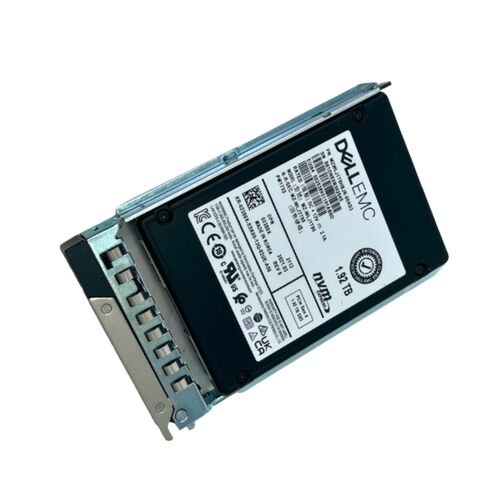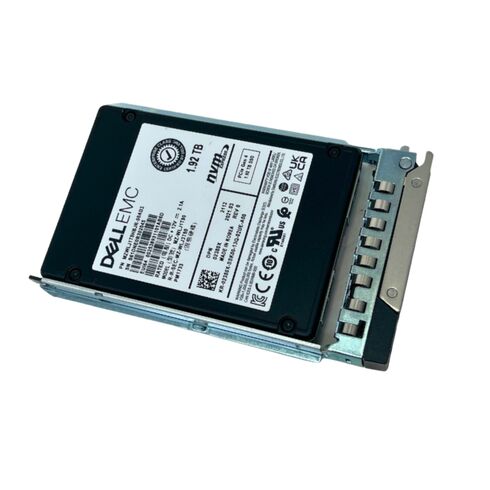MZWLJ1T9HBJR Samsung PM1733 1.92TB PCIe Enterprise SSD
- — Free Ground Shipping
- — Min. 6-month Replacement Warranty
- — Genuine/Authentic Products
- — Easy Return and Exchange
- — Different Payment Methods
- — Best Price
- — We Guarantee Price Matching
- — Tax-Exempt Facilities
- — 24/7 Live Chat, Phone Support
- — Visa, MasterCard, Discover, and Amex
- — JCB, Diners Club, UnionPay
- — PayPal, ACH/Bank Transfer (11% Off)
- — Apple Pay, Amazon Pay, Google Pay
- — Buy Now, Pay Later - Affirm, Afterpay
- — GOV/EDU/Institutions PO's Accepted
- — Invoices
- — Deliver Anywhere
- — Express Delivery in the USA and Worldwide
- — Ship to -APO -FPO
- — For USA - Free Ground Shipping
- — Worldwide - from $30
Same product also available in:
| SKU/MPN | Warranty | Price | Condition | You save |
|---|---|---|---|---|
| MZWLJ1T9HBJR | 1 Year Warranty | $332.00 | Excellent Refurbished | You save: $116.20 (26%) |
| MZWLJ1T9HBJR | 1 Year Warranty | $475.00 | New Sealed in Box (NIB) | You save: $166.25 (26%) |
Main Specifications
Product Overview
The SAMSUNG Pm1733 MZWLJ1T9HBJR is a high-performance solid-state drive designed for enterprise applications, providing exceptional speed and reliability.
Key Features
- Type: Internal Solid State Drive
- Storage Capacity: 1.92TB
- Form Factor: 2.5-inch
- Interface: PCI-Express 4.0 x4 (NVMe)
- Category: Enterprise
Extended Specifications
Detailed Product Information
- Device Type: Internal Solid State Drive
- Storage Size: 1.92TB
- Physical Dimensions: 2.5-inch form factor
- Connection Interface: PCI Express 4.0 x4 (NVMe)
- Target Market: Enterprise Solutions
Performance Metrics
Efficiency and Speed
- Drive Writes Per Day (DWPD): 1
- Internal Data Transfer Rate:
- Read Speed: 7000 Mbps
- Write Speed: 2400 Mbps
- 4KB Random Read IOPS: 800K
- 4KB Random Write IOPS: 100K
Connectivity Options
Expansion and Compatibility
- Interfaces: 2 x PCI Express 4.0 x4 (NVMe)
- Compatible Bay Size: 2.5-inch
Capacity
The Samsung PM1733 SSD is available in a variety of capacities, with the 1.92TB option being one of the most popular choices for enterprise users. This high-capacity storage solution offers numerous benefits and is of great importance for businesses that require fast and reliable data storage.
Unmatched Storage Space
With a capacity of 1.92TB, this SSD provides an ample amount of storage space for enterprise applications, databases, and critical data. It allows businesses to store large amounts of data without the need for multiple drives, resulting in improved efficiency and easier management.
Having a single high-capacity SSD means that businesses can consolidate their data storage needs, reducing the complexity and cost associated with managing multiple drives. This makes it an ideal choice for organizations looking to streamline their storage infrastructure.
Improved Performance
The 1.92TB capacity of the Samsung PM1733 SSD is not just about storage space; it also plays a crucial role in enhancing performance. With larger capacities, enterprises can benefit from improved read and write speeds, ensuring faster data access and transfer rates.
By utilizing the full capacity of the SSD, businesses can take advantage of higher bandwidth and throughput. This enables them to process large amounts of data more quickly, resulting in reduced latency and improved overall system performance.
Efficient Data Processing
For enterprises dealing with big data analytics or running resource-intensive applications, the 1.92TB capacity is essential for efficient data processing. It enables businesses to process and analyze large datasets without worrying about running out of storage space, ensuring uninterrupted workflows.
The capacity also allows for efficient virtualization and server consolidation. By leveraging larger storage capacities, enterprises can run more virtual machines and consolidate their servers onto a single SSD, reducing hardware costs and simplifying management.
Scalability and Future-Proofing
The 1.92TB capacity of the Samsung PM1733 SSD offers scalability for growing businesses. As data requirements increase over time, having a high-capacity SSD allows organizations to expand their storage capabilities without the need for additional hardware investments.
Furthermore, by investing in a large-capacity SSD like the PM1733, enterprises can future-proof their storage infrastructure. As technology advances and applications become more data-intensive, having ample storage space ensures compatibility and readiness for new challenges.
Reliability and Data Integrity
The 1.92TB capacity of this SSD is supported by Samsung's advanced reliability features, ensuring data integrity and protection. With features like error correction code (ECC), power-loss protection, and end-to-end data protection, businesses can trust that their critical data is safe and secure.
By choosing a high-capacity SSD, enterprises can store important files, databases, and applications in a single, reliable device. This reduces the risk of data loss or corruption that can occur when using multiple smaller drives.
Cost-Effectiveness
While high-capacity SSDs may come at a higher price point initially, they offer significant cost savings in the long run. The 1.92TB capacity allows businesses to consolidate their storage infrastructure, reducing the need for additional drives and associated maintenance costs.
In addition, the improved performance and efficiency provided by larger capacities result in time savings and increased productivity. With faster data access and processing capabilities, enterprises can accomplish more in less time, ultimately leading to cost savings in terms of resource utilization.
Conclusion
The Samsung PM1733 PCI-Express Enterprise SSD with a 1.92TB capacity offers businesses a high-performance storage solution with ample space for their critical data and applications. This capacity provides benefits such as increased storage efficiency, improved performance, scalability, reliability, and cost-effectiveness. By investing in this SSD, enterprises can meet their current needs while preparing for future growth and data demands.













